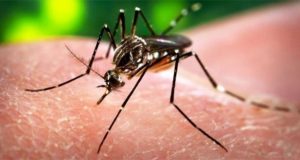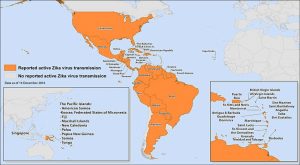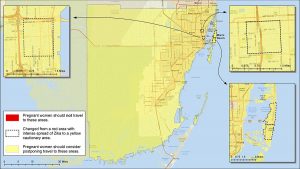ZIKA – 10 things you should know:

1. Pregnant women and those planning a pregnancy should avoid travel to countries or areas in the United States (including South Florida and Texas) with reported mosquito-borne Zika virus.
2. All travellers should protect themselves from mosquito bites. Zika virus infection is caused by a virus which is primarily spread by the bite of an infected mosquito.
3. It can be transmitted from an infected pregnant woman to her developing fetus
4. Zika virus can be sexually transmitted, and the virus can persist for an extended period of time in the semen of infected males. Cases of sexual transmission from an infected male to his partner have been reported. Only one case of sexual transmission has been reported from an infected female to her partner.
5. Symptoms of Zika virus can include fever, headache, conjunctivitis (pink eye) and skin rash, along with joint and muscle pain. The illness is typically mild and lasts only a few days and the majority of those infected do not have symptoms.
6. Experts agree that Zika virus infection causes microcephaly (abnormally small head) in a developing fetus during pregnancy and Guillain-Barré Syndrome (a neurological disorder).
7. Zika virus has been reported in Canada in returned travellers from countries with ongoing Zika virus outbreaks.
8. For women planning a pregnancy, it is strongly recommended that you wait at least 2 months before trying to conceive if you just returned from a country with reported mosquito-borne Zika virus.
9. For male travelers, it is strongly recommended that you wait at least 6 months before trying to conceive if you just returned from a country with reported mosquito-borne Zika virus. If your partner is pregnant, it is strongly recommended that men consider using condoms or avoid having sex for the duration of the pregnancy.
10. It is strongly recommended that men consider using condoms or avoid having sex with any partner for 6 months if you just returned from a country with reported mosquito-borne Zika virus.
https://www.cdc.gov/zika/
https://travel.gc.ca/travelling/health-safety/travel-health-notices/152


